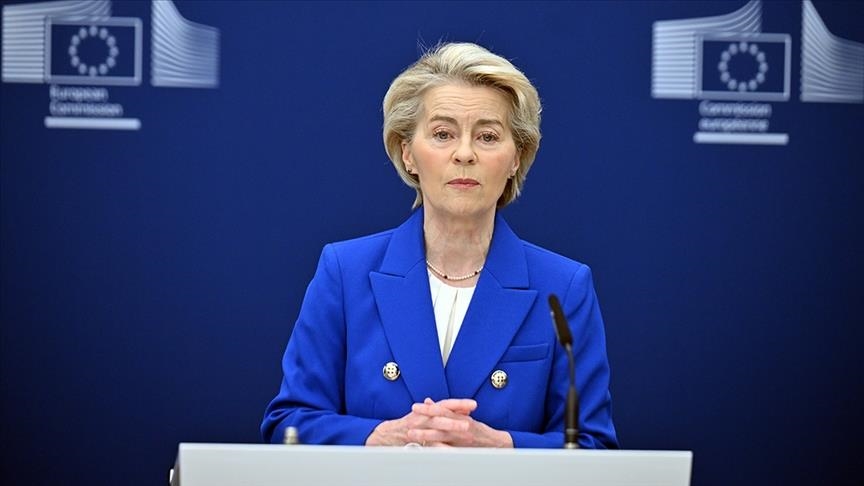Court rules European Commission wrong to withhold von der Leyen’s Pfizer texts
Ruling expected to have far-reaching implications for transparency, accountability in EU institutions

- Ruling expected to have far-reaching implications for transparency, accountability in EU institutions
- European Parliament's Left group condemns secrecy surrounding von der Leyen's dealings with Pfizer, describing it as evidence of 'corruption at the highest levels' within EU institutions
LONDON
The European Commission acted unlawfully when it refused to release text messages exchanged between its president, Ursula von der Leyen, and Pfizer CEO Albert Bourla during the height of the COVID-19 pandemic, the EU’s General Court ruled on Wednesday.
The messages between the commission’s president and Pfizer’s CEO, sent ahead of a multibillion-euro vaccine deal, became the subject of a long-running transparency dispute after reporters requested access to them.
The European Commission initially failed to confirm their existence, which was first revealed in a 2021 interview von der Leyen gave to The New York Times.
In its landmark judgment, the General Court criticized the European Commission for not justifying its refusal to disclose the communications.
The court found the EU executive “failed to explain in a plausible manner why it considered that the text messages exchanged in the context of the procurement of COVID-19 vaccines did not contain important information … the retention of which must be ensured.”
The ruling is expected to have far-reaching implications for transparency and accountability in EU institutions.
It also delivers a blow to von der Leyen’s personal credibility amid ongoing scrutiny of her role in vaccine procurement.
At the heart of the case was a legal debate over whether text messages should be treated as official documents.
While campaigners and legal experts argued that messages related to policymaking should be accessible under EU transparency rules, the commission maintained that text messages did not meet the threshold for official documentation.
During a preliminary hearing last year, the EU body told the court that the messages were not significant enough to be classified as documents and therefore were neither registered nor eligible for release to journalists.
In a statement issued after the ruling, the commission said: “Transparency has always been of paramount importance for the commission and President von der Leyen. We will continue to strictly abide by the solid legal framework in place to enforce our obligations.”
It added that it would “decide on next steps.”
Meanwhile, the European Parliament's Left group condemned the secrecy surrounding von der Leyen's dealings with Pfizer, describing it as evidence of "corruption at the highest levels" within EU institutions.
"The Left calls for the immediate establishment of an independent ethics body and concrete measures to counter the Commission President’s tendency towards secrecy and unilateral decision making," the group said in a statement.
Manon Aubry, co-chair of the Left, described the court ruling as a "victory for transparency" within the European institutions, emphasizing the importance of not allowing European leaders to legislate in complete secrecy.
“The fact that the New York Times’ lawsuit before the European General Court has been successful and that Commission President Ursula von der Leyen is a humiliation for the European Commission. Ursula von der Leyen has caused lasting damage to democracy in the EU through her lack of transparency," Martin Schirdewan, the Left's co-chair, also said.
He also urged von der Leyen to publish the chat history "to avert further damage to the EU and the credibility of European politics."
"Anything else would be irresponsible, and her position would no longer be tenable as Commission President. She must face consequences for her irresponsible actions," Schirdewan added.






